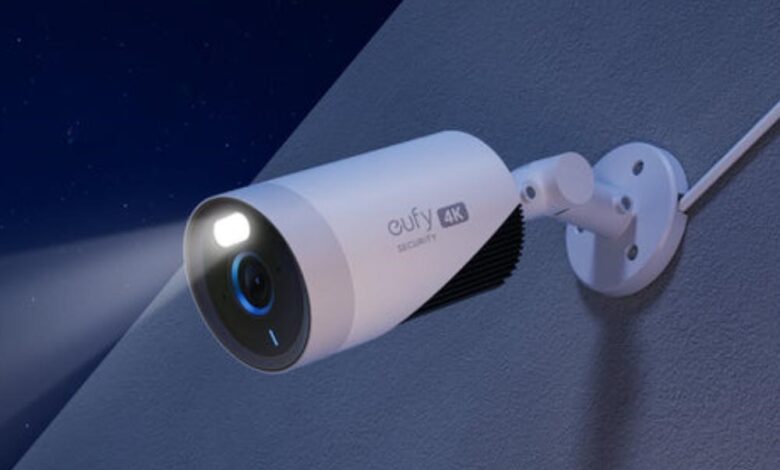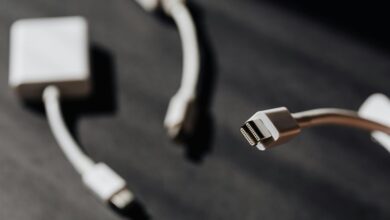Is My CCTV Camera Working? 6 Easy Ways to Check

Ensuring your CCTV camera is functional is crucial for maintaining the security of your home or business. A malfunctioning camera leaves gaps in your surveillance system, making your property vulnerable. If you’re unsure how to know CCTV camera is on or off, this guide walks you through six simple steps to verify your camera’s operation, ensuring you have reliable surveillance at all times.
Why It’s Important to Regularly Check Your CCTV Camera
Regular checks on your CCTV cameras are essential to prevent security breaches, ensure continuous monitoring, and save on repair or replacement costs. Functional cameras capture critical footage, deter wrongdoers, and provide peace of mind. Regular maintenance ensures your security system operates at peak performance without fail.
How to Check if Your CCTV Camera is Working: 6 Simple Steps
Step 1: Inspect the Camera’s Power Supply
The first step in checking if your CCTV camera is working is to inspect the power supply. Ensure the power adapter is securely plugged into an outlet, and check that all connections are firm. For battery-operated cameras, verify that the batteries are charged and properly installed. Without power, your camera won’t function correctly.
Step 2: Verify the Camera’s Connection
Next, make sure your camera is properly connected to your network or recording device. For wired cameras, check all cables for any signs of wear, damage, or loose connections. For wireless cameras, confirm they are within Wi-Fi range and properly connected to your network. A disconnected or poorly connected camera will not transmit video or audio correctly.
Step 3: Review the Camera’s LED Indicator
Many CCTV cameras come with LED indicators that show whether they are functioning. A solid or blinking light generally means the camera is operational. Refer to your camera’s user manual to understand what the different LED signals mean. If there’s no light or an unexpected color, this may indicate a power issue, connection problem, or another malfunction that needs further inspection.
Step 4: Test the Camera’s Video Feed
To check if your CCTV camera is capturing footage, log into your system using the DVR, NVR, or a mobile app. View the live video feed from your camera. If the feed is clear and updates in real time, your camera is functioning properly. However, if the feed is static, missing, or distorted, this could indicate a hardware issue or a problem with the camera’s connection.
Step 5: Check the DVR or NVR Recording
Ensuring that your camera is recording properly is crucial. Access your DVR or NVR and review recent recordings to verify that the footage is being saved. If you find gaps, missing files, or corrupted videos, it may indicate an issue with the recording device, the camera, or the storage system. Regularly reviewing recordings will help you spot any problems early.
Step 6: Use a CCTV Camera Tester
For a more comprehensive check, you can use a CCTV camera tester. These devices allow you to assess the camera’s video output, check the signal strength, and test other functionalities. By directly connecting the tester to the camera, you can detect problems with the internal components that may not be apparent through regular inspections. This ensures a thorough check of your system’s performance.
Common Issues That Can Cause Your CCTV Camera to Stop Working
Several common problems can cause your CCTV camera to stop working. Power failures, network issues, and hardware malfunctions are frequent culprits. Cables may wear out, settings may change unexpectedly, and software problems can disrupt performance. Physical damage, such as weather-related wear or tampering, can also impair functionality. Identifying these issues early prevents long-term disruptions in your surveillance system and helps maintain consistent monitoring.
FAQs About CCTV Camera Functionality
How Often Should I Check My CCTV System?
It’s advisable to inspect your CCTV system at least once a week. Regular checks ensure that you catch any potential issues early and avoid significant lapses in security. Frequent testing not only guarantees that your cameras are recording properly but also helps prolong the life of your equipment, reducing the chances of unexpected system failure when you need it most.
What Should I Do If My CCTV Camera Stops Working?
If your CCTV camera stops working, begin by checking the power supply and cables to ensure everything is securely connected. Then follow the six troubleshooting steps in this guide. If the issue persists, it’s best to consult a professional technician who can diagnose the problem and recommend repairs or, if necessary, suggest replacing the faulty equipment.

Conclusion
Regularly checking your CCTV cameras is vital to ensuring your security system remains reliable and effective. By following these six simple steps, you can quickly identify and address any issues, ensuring continuous surveillance for your home or business. Regular maintenance and prompt troubleshooting give you peace of mind and confidence that your property is always protected. Stay proactive with your security!



